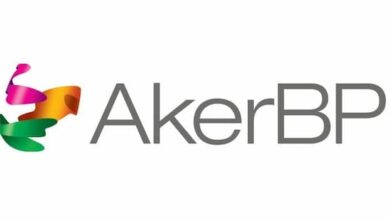GPS tracking systems on company vehicles can save fuel, labor costs, correct bad driving habits
By Lonnie Nietermayer, Pioneer Well Services

GPS tracking systems have been available for years, but only in the past year has the technology and price reached levels that make them affordable for large-scale commercial use. Currently available systems address key issues that affect many types of businesses, including energy service contractors. What business owner isn’t concerned with saving time, reducing costs, enhancing dispatching, improving safety and improving the environment?
Pioneer Well Services began installing GPS systems in 2009, and has seen outstanding results. Unauthorized use of company vehicles has been reduced, and knowing where the vehicle fleet is at all times has contributed greatly to management’s peace of mind. Fuel and maintenance costs have dropped as well. GPS units are now being added to Pioneer’s heavy-haul fleet to assist managers with logistics on rig moves.
There are many advantages with using GPS systems, but the quickest return on this type of investment centers around reducing labor and fuel costs – considered two of the largest expenses in the energy service business. Other advantages include: Employee accountability moves into the forefront of daily operations; fuel savings of 10% to 15% can be achieved; labor costs can be saved in the form of overtime; vehicle maintenance costs drop significantly; management of employee safety and the monitoring and correction of poor vehicle speeds and driving habits are enhanced.
Some of the other advantages of a GPS tracking system are discussed below.
FUEL SAVINGS, ENVIRONMENTAL FACTORS
Many states have or are moving toward stricter emissions controls. Needless or excessive idle time adds to CO2 levels, not to mention fuel costs. Studies have shown that savings on average annual fuel costs run between 10% to 15% with GPS systems installed. Reduction of idling time not only reduces fuel costs but cuts repair and maintenance expenses as well. Diesel engines burn over a gallon an hour, and newer diesel truck engines are not recommended to idle for extended periods of time due to the complicated exhaust regeneration systems required by the federal government. By addressing and controlling engine idle time, companies may be able to stay ahead of government regulations.
SPEED ALERTS
Almost all systems on the market can be set to alert management when the driver exceeds the posted speed limit. Research shows that every 5-MPH increase in speed over 65 MPH results in a 7% increase in fuel consumption. More importantly, the risk of accidents are increased when drivers go over posted speed limits, which also translates into higher insurance and liability costs.
UNAUTHORIZED VEHICLE USE
GPS tracking systems alert management anytime the ignition is turned on. Abuse of company vehicle privileges at night and on weekends can be virtually eliminated if monitored properly. This technology does not require anyone to sit in front of a screen 24/7. It works automatically by diverting a message directly to the manager’s e-mail/cell phone.
STOLEN VEHICLE ALERT
This technology allows real-time tracking and, if a vehicle is stolen, the vehicle is almost guaranteed to be recovered. GPS systems also have alerts that can be set for each vehicle in the fleet. Examples of the alerts are hours of normal operation, off hours and out-of-zone alerts. If a vehicle is stolen, any user can be notified, and visual tracking can begin. This technology has a “ping” feature that enables a viewer to “ping” the vehicle and receive location updates in 45 seconds or less. A user can view the screen, ping the vehicle and inform the police where the vehicle is located.
WORKER PRODUCTIVITY
Worker productivity is improved by having a more reliable tracking system for hours worked. It is much easier to approve work tickets when the system tells you where your employees were at exactly what time of the day. Reduced overtime relates directly to the bottom line.
One company using GPS stated that the system paid for itself in two weeks. Every week for over six years, this company’s employees turned in time sheets with a minimum of six to eight hours of overtime at one and a half times of regular pay. Once employees were told that GPS tracking systems had been installed, the time sheets dropped to 38 to 39 hours per week instead of 46 to 48 hours. The average employee makes $20/hr and was passing his/her time sheet for six hours of overtime. This means the employer was paying an additional $180/week, or $9,360/year, for each employee.
GPS systems also enable dispatchers and managers to enter a service call location and view which technician is closest to the new call. This feature saves time and money by dispatching a service tech that is closest to the call. It also adds to fuel economy and customer satisfaction/call response time.
RESPONSE TIME
Management can see in real time where the nearest available unit is located, resulting in more efficient dispatch time, improved customer satisfaction and, ultimately, higher profits.
DRIVER VEHICLE SAFETY
Drivers have shown a tendency to be more careful and observant of traffic laws if they know they are being monitored, which results in fewer vehicle incidents and lower insurance costs. Driver habits also can be observed via system-generated reports, and action can be taken to modify and eliminate risky driving practices. This not only benefits the company but the employee and his/her family.
ROUTE EFFICIENCIES, MAINTENANCE
Live tracking and mapping allows management and dispatch to see in real time the most efficient route to a destination. Good logistics may be the difference between profit and loss in today’s oilfield. A well-designed GPS fleet management system can, for example, do wonders for fluid service companies, which are often paid by the load and not by the hour.
The vehicle maintenance feature also saves money and time with respect to vehicle service. All maintenance items can be listed with assigned required maintenance intervals. Intervals can be based on actual miles driven or elapsed time. Once the items have been set up within the systems, e-mails are generated and delivered stating required maintenance. Maintenance items performed are also listed in a history file and a schedule is created for viewing.
CONCLUSION
Safe and efficient vehicle operations are key to any industry, especially those involved in oil and gas exploration. GPS fleet management systems that monitor driver and vehicle performance could be one of the safest and more cost-effective technologies on the market today.






A friend referred me to this resource. Thank you for the resources.